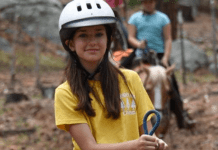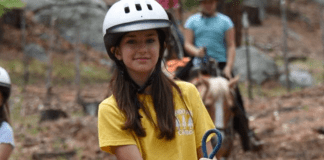Icebreakers and getting-to-know-you games are going to be a major part of the first week of school. For some kids, this is the worst part of going back to school (this and all the time they spend going over the rules!). For some kids, these games can be anxiety inducing for a variety of reasons. They don’t remember what they did over the summer. They’re asked to share their favorite summer memory, which can be difficult for some as it requires ranking experiences they may not want to. For others, they may be embarrassed to share about their summer because of social pressures. And, if teachers don’t coordinate, you can end up doing the same or similar things repeatedly, which gets boring or increases the pressure to find something unique to share each time.
Thankfully, this is something you can prepare for ahead of time. You can look up different types of icebreaker activities to get a sense of things that are asked and prepare answers ahead of time.
For example, Summer Bingo is a popular icebreaker. This game asks kids to talk to their classmates and find a common activity for the summer. If you have something similar, you write their name in the square and try to get Bingo! Help your child think of summer activities such as swimming, eating ice cream, watching fireworks, having sleepovers, reading books, etc. that other children might have done..
Most kids don’t think like this about their experiences and can sometimes forget they did them so they move into a fight, flight, or freeze mode at school. Or they feel awful because they don’t connect with anyone in their class, both on an experience level and to try to “win” the game. So, you can start listing out all the things they did over the summer in this Bingo style so they can connect with others as well as have a lot to share about their break.
Sometimes, icebreaker activities aren’t about summer but about themselves. Helping them think through examples like one word to describe their personality, a hobby, a favorite place, an animal that starts with the first letter of their name, or a dance move that represents them. This reduces the in-the-moment stress when it comes to completing these activities. It also helps them decide what they want to share with classmates and teachers ahead of time. For the animal and dance move, it can be helpful to have more than one, just in case someone else has the same idea.
Remember, the first week of school is not what the rest of the year is like, but for your kiddo, it can set an initial tone. As parents, we want our kids to be happy at school, so if our kids come home miserable that first week of school, we often try to convince them that it’s not that bad, or it’s going to be great, or we don’t help them process those initial icky feelings. By listening, providing some soothing activities, and loving them as they like to be loved, you can create a safe space for your child to feel all those feelings and then come back to a neutral place of calm. So, keep yourself emotionally regulated so they can rely on you for some extra love and support. Let us know how the first week of school goes for you!











